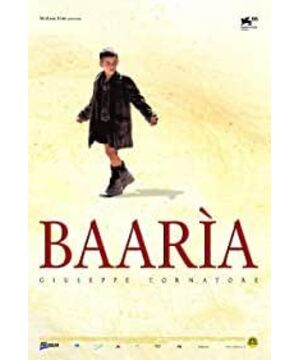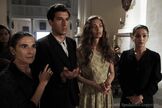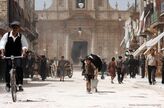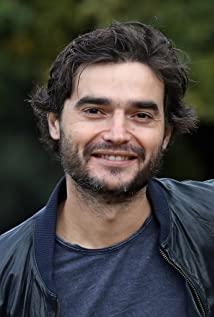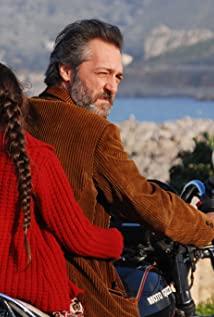"Baaria: The Gate of the Wind" is a tribute to his hometown of Sicily launched by Tonadore after the "Sicilian Trilogy", which has been dormant for many years. If I didn't insist on seeing the end, I wouldn't want to write about it.
Is it painful or comfortable at the moment of death? I think it will be comfortable. The experience of a lifetime should always be reviewed with the last bit of effort. Even if it's an unforgivable offender, or a Jiangyang thief, it should be at ease at the moment of death. People are born with the ability to remember, the older the older, the stronger this ability. Last year, when I read Zhang Ailing’s "Little Reunion", she found that she sorted out the subtle way of her life, and found that "she woke up happy for a long, long time." Mozart died early. He didn't want to die. He wrote "Requiem" before he died. I wish I believe it was Mozart's self-talk. He didn't finish it, but I still believe that he was "happy" when he died. Even if he didn't fill in the last note, he had already written this piece of music in his head.
Of course Tonadore was not dead, and he was able to "wake up slowly" through "Baaria: The Gate of the Wind" and also "be happy for a long, long time".
It is true that this is a happy movie. The sunshine in Sicily, Italy is happy, and the people in Sicily, Italy are happy. The orange color from beginning to end is enough to make people believe that one's life should be a safe place full of sunshine. Of. Baaria, a small town in Sicily, Italy, is calm and peaceful, and there is the hometown of director Tonadore.
How much meaning can the hometown give to an artist? Lu Xun realized at the end of the novel "Hometown": "Hope does not matter whether it is there or nothing. It is like a road on the ground; in fact, there is no road on the ground; in fact, there is no road on the ground. "This is Lu Xun's smile while sitting and watching the situation. Indifferent to hope is in fact fearlessness of life. The hometown tells Lu Xun that life is like walking. If "Hometown" does not have this ending, it can only be regarded as mediocre; if it has, it is great. "Baaria: The Gate of the Wind" is also the way to win at the end. Ninety-nine percent of the movie uses the protagonist to tell the story of his life. The narration is plain and unsuspicious, just like watching the beautiful scenery. Photo. But the ending is wonderful, which is similar to Lu Xun's novel "Hometown".
"Baaria: The Gate of the Wind" takes the protagonist Pepino's life trajectory from childhood to adulthood as the main line, along with the life of his father Chico from adulthood to death and the life of his child Pietro from waiting to be nurtured to flying high, and interspersed with many historical events. in. Three generations of me, my father, and my child are like one person, one generation after another, but the cycle of life from birth to death from generation to generation. The film deliberately mixes Pepino's childhood and the future of reincarnation with his own son in the dream together, as if not alone, but as if he were a person. At the beginning of the film, Pepino as a child fell asleep in the classroom. In his dream, he walked from youth to adulthood, from adulthood to old age. At the end of the film, when Pepino as a child woke up, he walked onto the street and came. In the contemporary era, I saw the future of my own reincarnation. The future of this reincarnation is no big deal. He is still a lively boy in Sicily, he will still experience the ups and downs of life, will still remember his life before death, and then die happily.
A really good movie does not lie in how eye-catching it is, but in the constant aftertaste after you watch it. I don't remember what Lu Xun said to Runtu in the novel "Hometown", but I always remember the end of the novel. I would rather forget the large narrative of "Baaria: Gate of the Wind", and just want to remember his last picture. That was a fly: Pepino in the future is Pepino in childhood. When his toy spinning top was smashed, there were flies flying out of the spinning top. It was a fly from a previous life, a fly that Pepino's son put in in the dream, a fly that could still fly.
"Baaria: The Gate of the Wind" allows Tonadore to continue his dream of his hometown. Whether it is "Paradise Cinema" or "The Beautiful Legend of Sicily", the story of Sicily continues, and the story of each of us also All continue, and will continue forever.
Published in "A Hundred Days of Holiday" on May 14
View more about Baaria reviews


